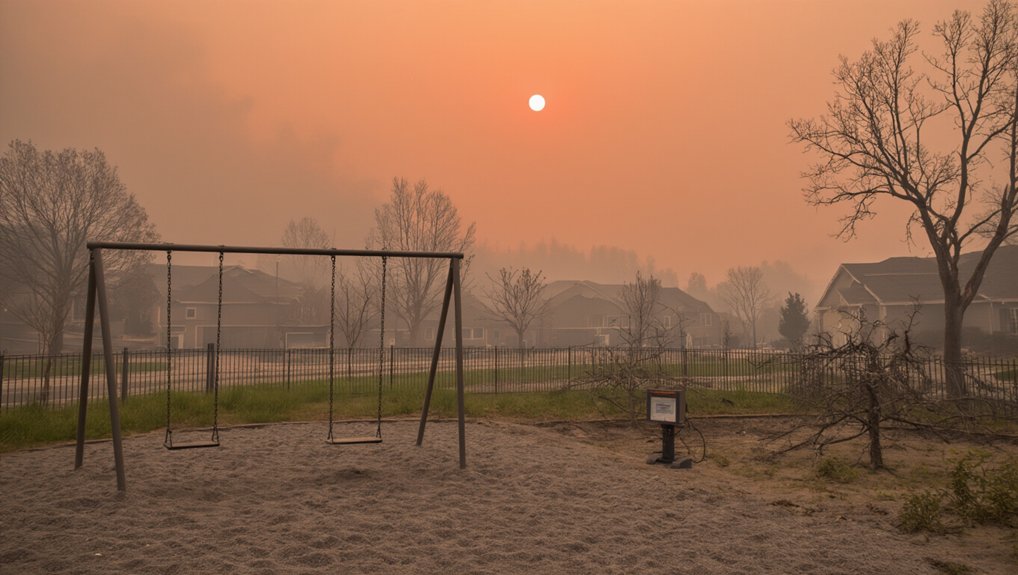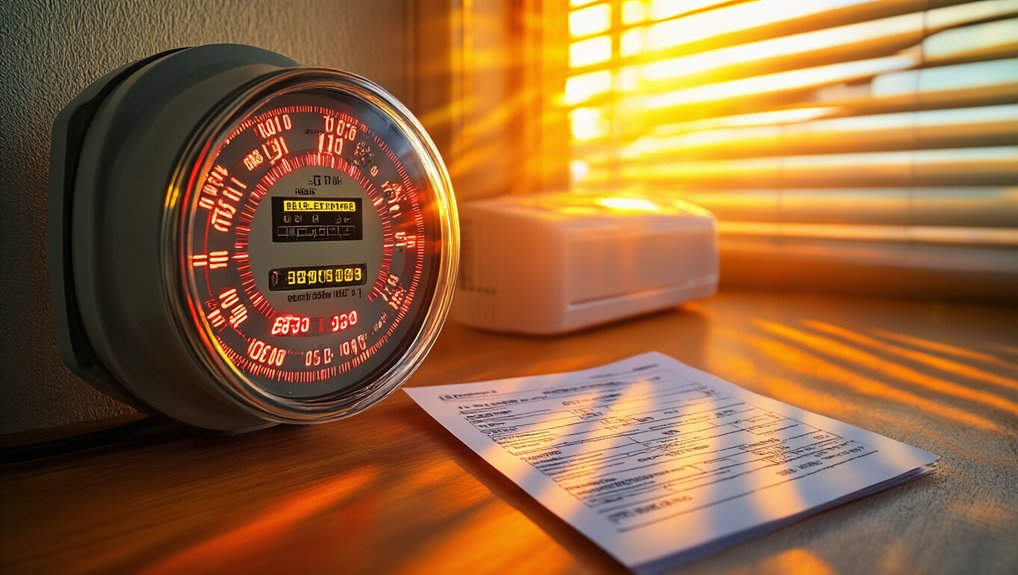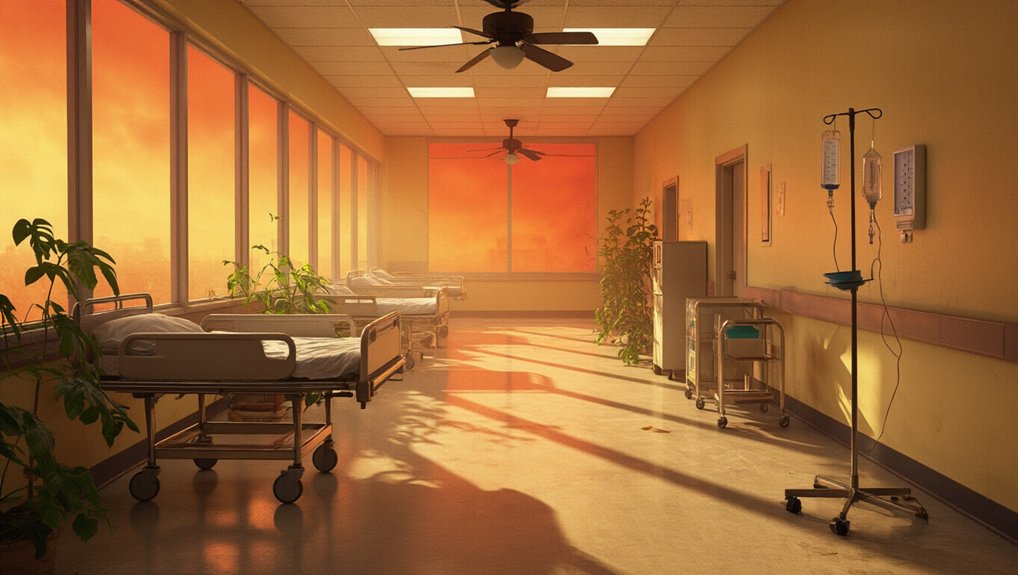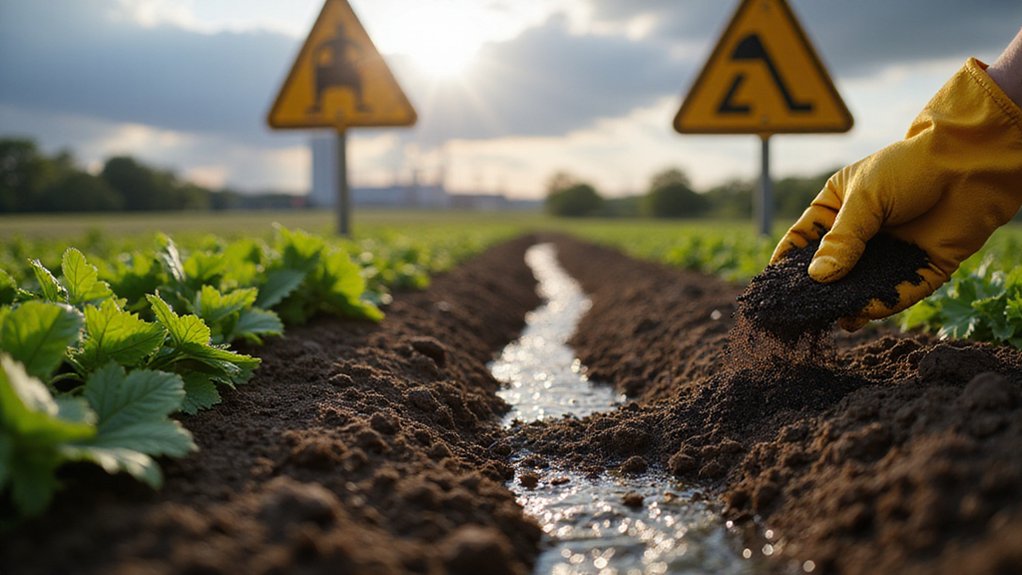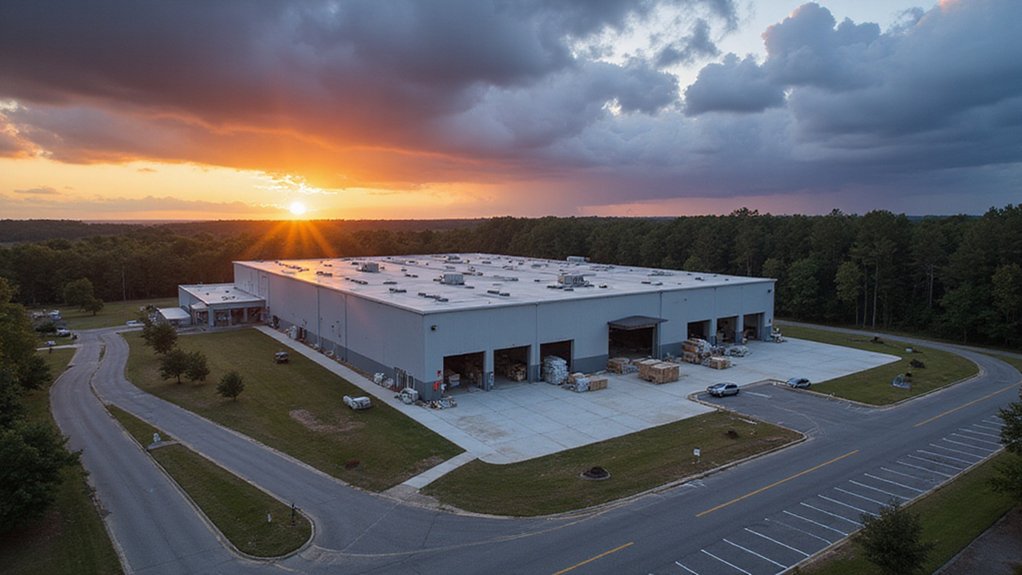While the effects of climate change continue to intensify, the gutting of the Environmental Protection Agency leaves millions of Americans increasingly vulnerable to the health hazards of wildfire smoke. The EPA isn’t just some bureaucratic paperwork factory. It’s the organization that literally helps you breathe when half the country’s on fire.
Those microscopic PM2.5 particles in wildfire smoke? They’re killers. They burrow deep into lungs, trigger asthma attacks, and send people with heart conditions straight to the ER. Without the EPA’s Air Quality Index thresholds, good luck knowing when the air outside might actually kill you.
The agency’s “Smoke-Ready Toolbox” and Best Practices Guides are essential resources for local authorities scrambling to protect their communities. The free PDF guides are specifically designed for decision-makers to develop effective smoke-response strategies. They’re the difference between a school knowing how to keep kids safe during smoke events and just winging it. Spoiler alert: winging it usually ends badly.
When smoke clouds roll in, unprepared communities gamble with lives. The EPA’s guidelines aren’t optional—they’re survival tools.
For workers stuck outdoors during smoke events, EPA standards form the backbone of workplace safety regulations. States use these guidelines to determine when employers need to hand out respirators or modify work schedules. No EPA, no protection. Simple as that.
Indoor spaces aren’t magically smoke-free either. The EPA’s 2025 Best Practices Guide outlines vital measures for reducing indoor exposure—like proper HVAC systems and building seals. Without these standards, that “indoor air” you’re breathing might not be much better than standing in a campfire.
Children, the elderly, and folks with pre-existing conditions suffer the most when smoke rolls in. The EPA’s guidance specifically addresses these vulnerable populations. Take that away, and hospital admissions skyrocket.
The math isn’t complicated. Weaker EPA means more smoke in your lungs. More smoke means more sickness, more missed work, more medical bills. More death, actually. But hey, at least there’d be less regulation, right?
References
- https://www.epa.gov/emergencies-iaq/wildfires-and-indoor-air-quality-schools-and-commercial-buildings
- https://www.epa.gov/air-quality/wildland-fires-and-smoke
- https://www.lni.wa.gov/safety-health/safety-rules/rulemaking-stakeholder-information/wildfire-smoke
- https://www.epa.gov/air-research/smoke-ready-toolbox-wildfires
- https://www.aiha.org/news/250612-epa-releases-guide-to-improving-indoor-air-quality-during-wildfire-smoke-events
